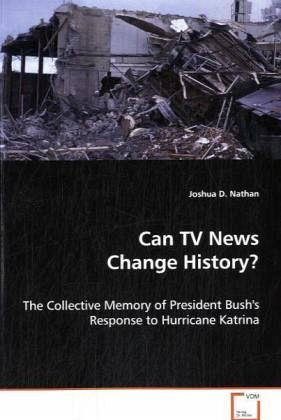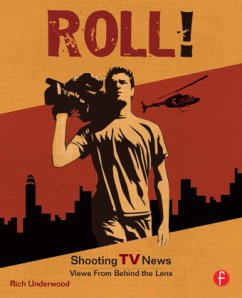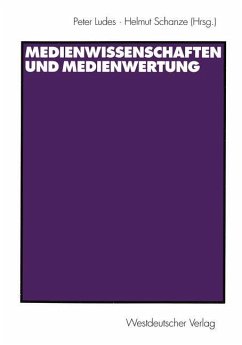
Can TV News Change History?
The Collective Memory of President Bush's Response to Hurricane Katrina
Versandkostenfrei!
Versandfertig in 6-10 Tagen
32,99 €
inkl. MwSt.

PAYBACK Punkte
16 °P sammeln!
In an age when technology is evolving at anexponential pace, our reliance on it is increasingjust as fast. But during, and immediately after,Hurricane Katrina, almost all communication in thearea abruptly ceased. Only one medium was able toeffectively operate and inform the nation: TV News.Very little academic literature exists on theramifications from a period in which one news mediumdominates. Serving as a foundational citation inCommunication, the analysis uses a methodology thatmay continue to be replicated in order to forge amore definitive and diversified view of how TV Newsimpacts histo...
In an age when technology is evolving at an
exponential pace, our reliance on it is increasing
just as fast. But during, and immediately after,
Hurricane Katrina, almost all communication in the
area abruptly ceased. Only one medium was able to
effectively operate and inform the nation: TV News.
Very little academic literature exists on the
ramifications from a period in which one news medium
dominates. Serving as a foundational citation in
Communication, the analysis uses a methodology that
may continue to be replicated in order to forge a
more definitive and diversified view of how TV News
impacts history. Did reporters deceive the millions
who were watching? Appealing to professionals working
in History, Politics, and Communication, this book
investigates the broadcast content to determine its
accuracy and the public memory it created. It sheds
light on what really happened during the aftermath of
Hurricane Katrina and whether President Bush
responded appropriately. Evaluating the industry''s
impact during a rare time when it faced no
competition, this book is also directed at anyone
considering a career in TV News and those already
working within the field.
exponential pace, our reliance on it is increasing
just as fast. But during, and immediately after,
Hurricane Katrina, almost all communication in the
area abruptly ceased. Only one medium was able to
effectively operate and inform the nation: TV News.
Very little academic literature exists on the
ramifications from a period in which one news medium
dominates. Serving as a foundational citation in
Communication, the analysis uses a methodology that
may continue to be replicated in order to forge a
more definitive and diversified view of how TV News
impacts history. Did reporters deceive the millions
who were watching? Appealing to professionals working
in History, Politics, and Communication, this book
investigates the broadcast content to determine its
accuracy and the public memory it created. It sheds
light on what really happened during the aftermath of
Hurricane Katrina and whether President Bush
responded appropriately. Evaluating the industry''s
impact during a rare time when it faced no
competition, this book is also directed at anyone
considering a career in TV News and those already
working within the field.












